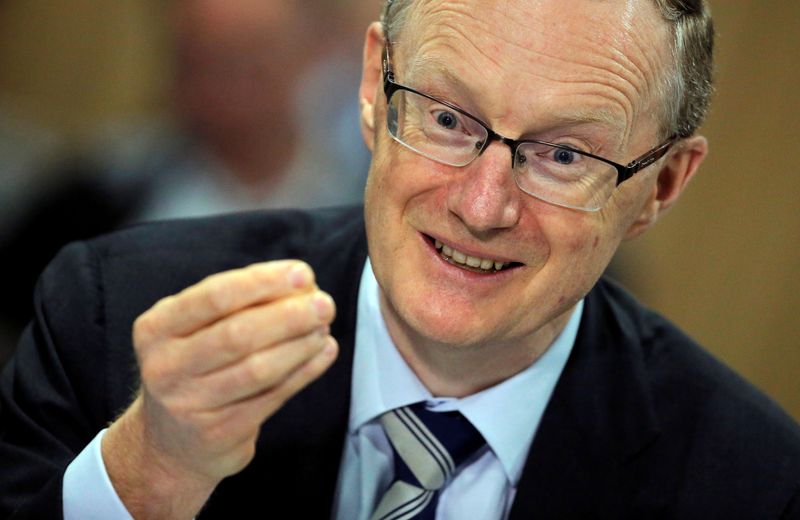By Wayne Cole
SYDNEY (Reuters) - The head of Australia's central bank on Tuesday said further increases in interest rates would likely be needed to tame inflation, and it was ready to go faster on hikes or to pause for a time if necessary.
In a speech in Tasmania, Reserve Bank of Australia (RBA) Governor Philip Lowe said the policy making board was aware that rates had risen sharply in a short period of time and this was combining with high inflation to pressure household budgets.
The central bank lifted its cash rate by 25 basis points on Tuesday to a nine-year peak of 2.85%, bringing its tightening to a steep 275 basis points since May.
It downshifted to a 25 basis point increase in October after four outsized hikes of half a point, becoming the first of the major world central banks to slow its pace.
Lowe emphasised that the global outlook was also a reason to be cautious with rate rises given the Russian-Ukrainian war, surging living costs and a more fragmented world economy.
That leaves the RBA walking a narrow path between curbing inflation while not tipping the economy into recession. The RBA had already trimmed its forecasts for domestic growth next year given the deterioration in the global economy and the squeeze on household finances.
"If we are to stay on that narrow path, we need to strike the right balance between doing too much and too little," said Lowe.
With inflation expected to peak around 8% this quarter, further increases in interest rates would likely be needed, he said, though the board was not on a pre-set path.
"If we need to step up to larger increases again to secure the return of inflation to target, we will do that," said Lowe. "Similarly, if the situation requires us to hold steady for a while, we will do that."
Markets assume the RBA will hike by another 25 basis points in December and that rates will peak around 4.0% sometime next year. [AU/INT]

Lowe added that the consequences of not raising rates and allowing the "scourge" of inflation to become entrenched, were too costly to bear.
"If this were to happen, the evil of inflation would be with us for longer and the eventual increase in interest rates needed to bring it down would be greater," said Lowe.